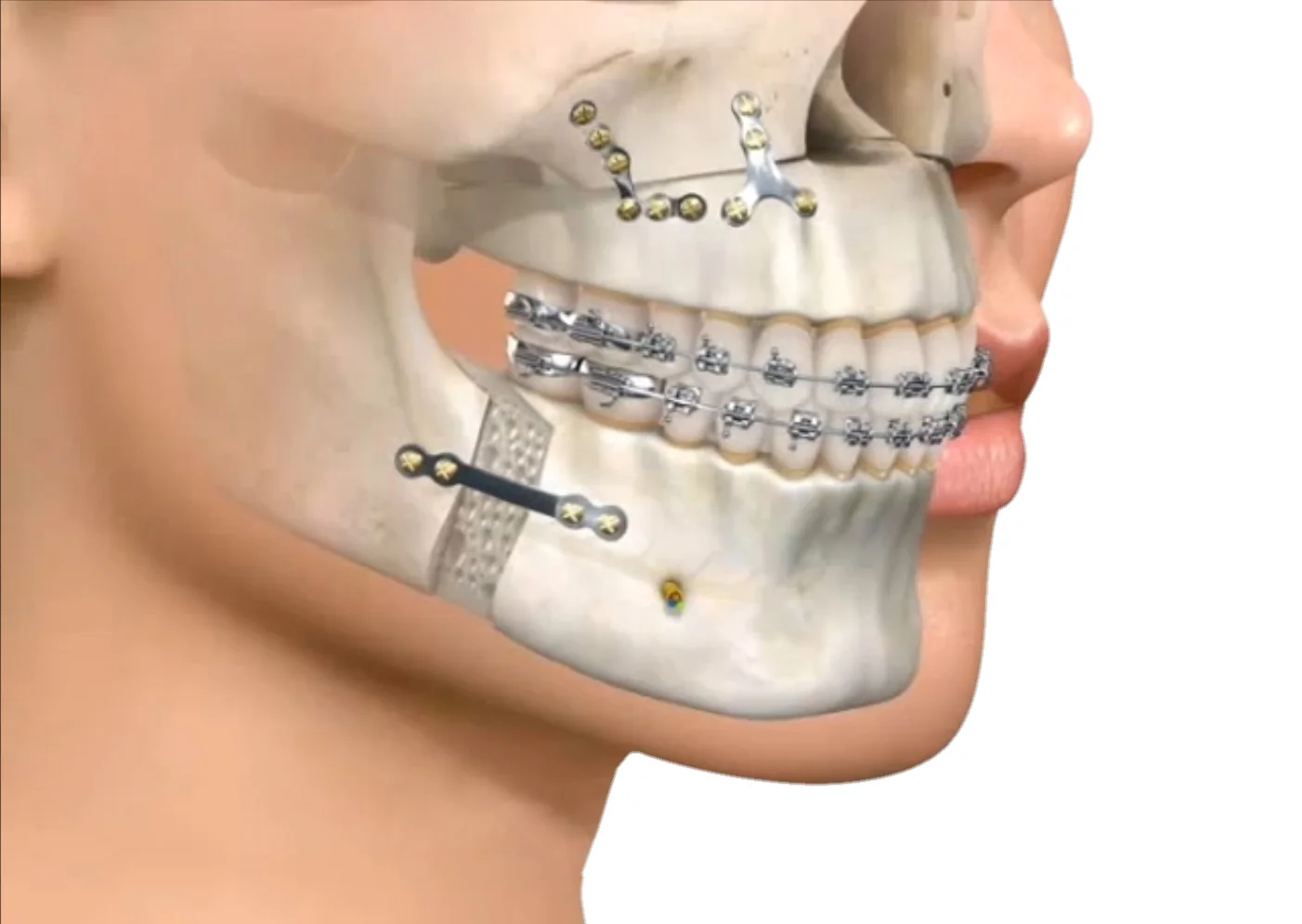Jaw Surgery
What is jaw surgery?
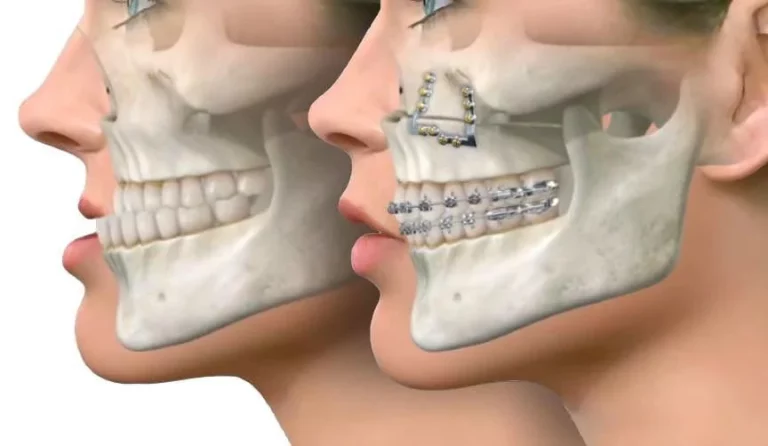
Jaw surgery is a surgical procedure that allows us to correct different problems related to the jaw and improve its function.
If you have jaw concerns that have not been resolved with orthodontic treatment, jaw surgery is a corrective option.
This intervention, also known as orthognathic surgery, corrects irregularities in the maxillary bones, as well as the alignment of the jaws and teeth, among other cases.
Generally, in preparation for this surgery and its subsequent treatment, the orthodontist dentist works with a maxillofacial surgeon.
In which cases is jaw surgery appropriate?
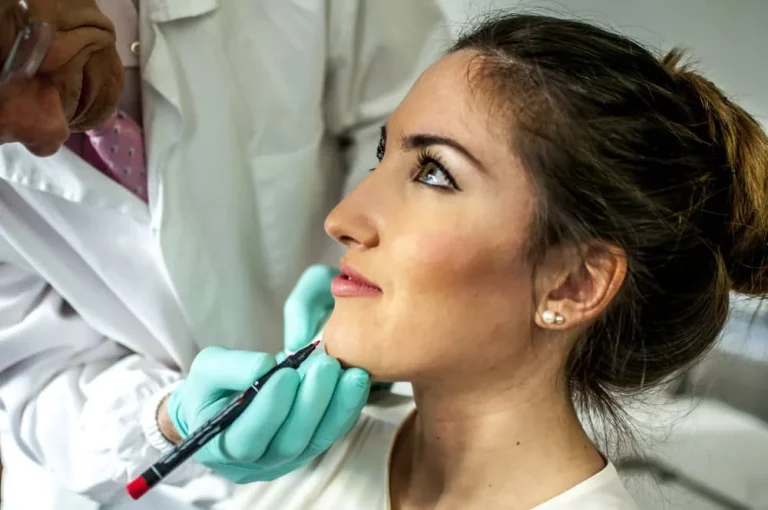
Jaw surgery is an appropriate therapeutic alternative when the growth stage ends, between the ages of 14 and 16 for women and between 17 and 21 for men.
- Facial asymmetries (imbalances) include a small chin, prognathism, overbit, and crossbite.
- Consequences of injuries or congenital defects.
- Excessive wear and tooth breakage.
- Pain / discomfort caused by a temporomandibular joint disorder.
- Disadvantages derived from obstructive sleep apnea.
- Problems swallowing food or speaking.
- Chewing and biting difficulties.
How is jaw surgery?
Improving Oral Health and Quality of Life
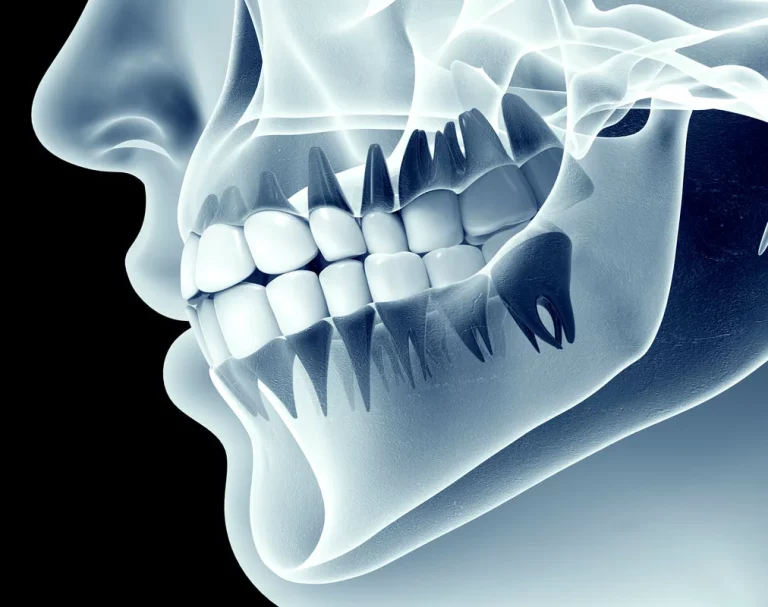
Before the intervention, a complete assessment is made to determine if the person is suitable for jaw surgery, since they must be in good general health. This evaluation may include x-rays, 3D images, as well as models of the mouth and jaw.
During the procedure, cuts are made in the jaw bones and moved into a suitable position. The bones are fixed in their new location with screws and rubber bands.
In some cases, it may be necessary to add extra bone to the jaw. In others, bone remodeling is done.
Jaw surgery can be performed on the upper or lower jaw, on the chin, or a combination of these areas.
In most cases, some orthodontic devices are used before surgery and during recovery, until the jaw is aligned.
Post-jaw surgery care.

After surgery, it is normal to experience swelling, pain, and difficulty speaking, chewing, and swallowing.
Recovery can take several weeks. In the postoperative stage, it is necessary for the person to follow the surgeon’s instructions to have a better chance of success.
For this purpose, the doctor will give indications regarding:
- Type of diet for the following weeks
- Oral hygiene care
- To avoid the use of tobacco
- Physical activities that require effort cannot be performed.
- Pain management medications

19 Natural Antibiotics to Ward Off Any Dental Infection
Sign up to receive daily email dentist tips and challenges, as well as our comprehensive Better smile Guidebook.
Risks and complications of jaw surgery
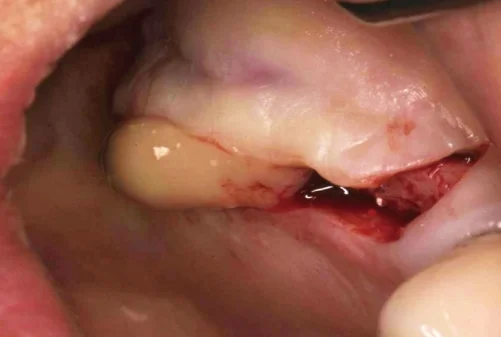
An essential step is to have a dialog with the surgeon about the risks and benefits of the procedure.
Possibilities of infection, bleeding, nerve damage, healing problems, and adverse reactions to anesthesia are some of the contingencies that can occur.
Conclusion
Find the right professional for your case
Jaw surgery is a highly effective procedure for correcting bite and jaw difficulties and improving jaw function.
The choice of surgeon is a relevant aspect. This type of intervention must be performed by an experienced surgeon, since the side effects can have different implications for overall health.
Investigate different alternatives and verify the suitability of the professional who will attend to you. Our directory of oral health professionals helps you in that search. Consult it, select different options, and choose the alternative that meets your expectations.

19 Natural Antibiotics to Ward Off Any Dental Infection
Sign up to receive daily email dentist tips and challenges, as well as our comprehensive Better smile Guidebook.
Our Doctor
Meet Doctor

19 Natural Antibiotics to Ward Off Any Dental Infection
Sign up to receive daily email dentist tips and challenges, as well as our comprehensive Better smile Guidebook.




